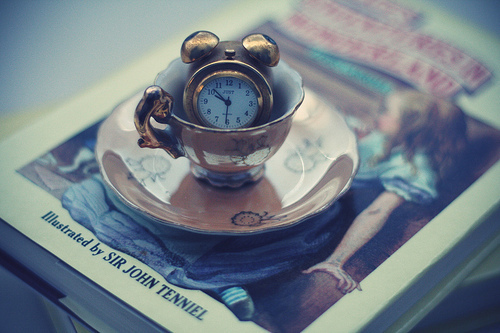5 Tools to Ninja up your Writing
I want to share my top five writing tools. Not all of these will work for everyone, but if nothing else, I hope it make you think about your own writing process and how you can improve it (and we can always improve, no matter how good we are).

Byword: I love Byword. It’s a distraction-free writing app, and it really is just that—tons of white space, and very little in the way of features (it only works on iThings, but there are similar programs for PCs). It’s the app I open in the early stages of a project. Byword is designed to keep you in the present moment. Lines of text fade from black to pale grey just as soon as you complete them. It encourages you to just keep writing—not to reread or critique what you’ve just done. I find that writing thousands of words is almost effortless with Byword. After I have that first chunk of the story down, I’ll transfer it to Pages or another more complex writing app (Scrivener, Ulysses, etc) to deal with the text there. Byword is unwieldy for detailed editing of large pieces. But for pure “get ‘er done” free writing, it’s fantastic.
Duotrope: I am not particularly good at record keeping on my own (read: I suck at it), so Duotrope is a perfect tool for me. With it, I can track my story submissions in a tidy, efficient way. As a bonus, the Duotrope database of market listings is extremely handy (though definitely not comprehensive). Since starting with Duotrope, I have a much better handle on my submissions process. I’m able to strategize which markets to aim for by type (pro, semi-pro, etc, for example), and to know which markets are open for submissions and when. I’m way smarter about timeliness too—when I get a rejection, I simply log it and submit the story to the next market on my list. In a way, Duotrope makes me more professional and less…um, emotional about my submissions. And that’s well worth it. Duotrope is usable for free, but much more of its functionality kicks in when you subscribe. (Caveat: Duotrope is geared to toward writers who will be submitting pieces to other markets. If you’re only writing novels, say, or if you’re self-publishing everything you do, Duotrope probably isn’t for you.)
RescueTime: I started using this app earlier this year. I was hesitant to install it, because I’m wary of “metrics”. So often crunchy data look impressive but tell you absolutely nothing useful. But RescueTime has improved my awareness of my work habits in a real way. It tracks everything you do on your computer and simply records it (with the paid version, you can set RescueTime to block the internet and other distractions for a set amount of time as well). It’s best to install RescueTime and then forget you installed it for a week or so. Don’t change your habits—just let RescueTime watch you work (Hal-like) and get some data collected. Then you can start looking at all the pretty charts RT generates. It’s eye-opening. You’ll see exactly how many minutes you spend in your writing applications, as well as email and individual websites. I was surprised to discover that I didn’t spend nearly as much time of Facebook as I thought (it only feels like forever). However, I spent way more time reading news articles of dubious import (click bait, anyone?). On the bright side, RT posts encouraging notes when you hit positive goals.
Timer: as in, an actual timer. Sometimes it helps to have that outside reminder that the clock is literally ticking. I don’t use a timer every day. But when I’m having a terrible time focusing, I’ll set the timer for fifteen minutes and say “I’m just going to write for fifteen minutes. DEAD PEOPLE can write for fifteen minutes.” That short, targeted goal often helps to break me out of my focus funk. And when the timer dings, I just crank it again…or keep on writing, if my practice has kicked in. Personally, I like those old-fashioned timers that simply go ding at the end. However, any timer app can work just fine. The point is letting yourself be ruled by the timer long enough to get you in the flow.
Tea: Yeah, I’m getting real high tech here. A near constant supply of tea is invaluable for my writing, and not just for the caffeine. The warm mug is so useful for de-chilling fingers that just typed 1000 words! The comforting aroma of Barry’s, or Yorkshire Gold, or PG Tips (all bagged—I’m no aristocrat, people) definitely helps put me in a proper mindset to write. Also, it does have that nice caffeine…[Jocelyn heads off to make another cup of tea]
(This post is also up to view at Star-Dusted Sirens)
